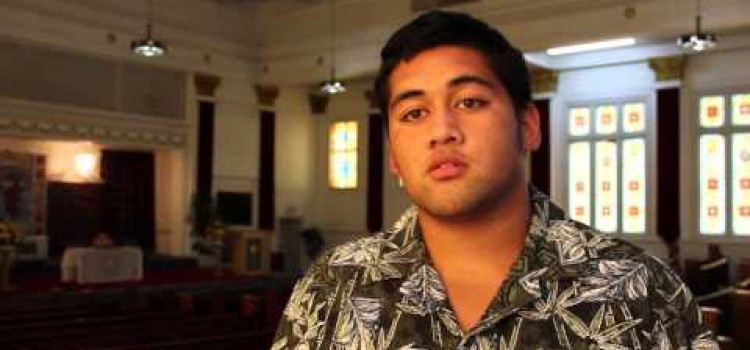

Kulia I Ka Nu’u. Strive for the summit.
This was the motto of Hawaii’s Queen Kapi’olani. She told her people, “Strive for the very top of the mountain, strive for excellence.”
For years Pacific Islanders from Hawaii, Samoa, Tonga and Guam have been misunderstood. Since it’s first use in the 1990s, the term Asian Pacific Islander has often hidden the story of Pacific Islanders’ struggle for success. Often stereotyped as a model minority under the larger umbrella category of “Asian,” Pacific Islanders are left out in national discussions about education issues.
Pacific Islanders (PI) are about half as likely as the general population to hold bachelors’ degrees and are about five times less likely than Asians to hold advanced degrees. Like some Latino and African-American communities, many in the Pacific Islander community face economic and structural barriers to academic success.
In the video above, VoiceWaves interviewed local folks who speak on the achievement gaps experienced by the PI community in Long Beach.
“As communities of color, we’re faced with a lot of the same issues,” said Joey Quenga, who is Chamorro from Guam and host of The BBQ, a monthly radio show for the PI community that runs out of the Pacific Islander Ethnic Museum in Long Beach. “You’re talking about impoverished communities and you’re talking about gangs.”
One of the fastest-growing immigrant groups in the nation, 23 percent of all Pacific Islanders living in the U.S. currently reside in California, according to the 2010 U.S. Census. Many of them live in Long Beach on the Westside and surrounding cities like Carson, Cerritos and Oceanside.
Pacific Islanders have the highest dropout rate in Long Beach—with rates at about 10 percent, compared to a three percent rate for both Asian and white students. In an even larger snapshot, 9 out of 10 Pacific Islander students are not prepared for college-level coursework, according to a study by Education Trust-West.
“Many come to the States and are unable to immediately find a well-paying job,” said Dan Hatori, Project Director of UCLA’s Pacific Islander Education and Retention Program, in an e-mail to VoiceWaves. “This leads to students being enrolled in public schools with curriculum which may be less rigorous than other schools.”
Violence and gang affiliation may be another barrier for some PI youth. Violence has become a pressing issue in the community as the Tongan Crip Gang, Sons of Samoa, and other gangs roam the tough parts of L.A. County, Hatori said. One of those areas is West Long Beach.
“When you don’t have much money, you live in areas where it’s gang infested and there’s a lot of crime,” said West Long Beach resident Seila Tuliau, mother of an ex-Sons of Samoans gang member. “It’s the only area you can afford to live. It has a big effect on growing up because those are the people you hang out with.”
What experts are asking for is more awareness of the issues that Pacific Islanders face, Hatori insinuates.
“Being grouped in with all Asians when using the term API (Asian Pacific Islander) in statistics to judge whether a particular race or ethnicity is doing well or not is often deceptive,” Hatori said. “People who are not very knowledgeable on the issues the Pacific Island community face will look at API numbers and think Pacific Islanders are not struggling at all,” Hatori said.
Such misconceptions are having horrid effects on Pacific Islanders’ prospects for scholarships, advocates argue, and therefore college access. Many scholarships decline Pacific Islanders, mistakenly assuming such students to be as privileged as their Asian peers. In fact, 19 percent of Tongans are currently living at the poverty rate.
Despite such barriers, many remain steadfast in their dreams for success and continue to see education as a path to their dreams.
“I’m going back to school,” said Eric Tuliau, who joined Sons of Samoa at age 15 but is not involved with the gang anymore. “I’m going to get my GED. I also hope my little brothers and sisters go to school.”
Quenga has also left behind a legacy. His fraternity, TAO, started in 1997 and continues across various campuses today. The organization has members employed at UCLA and in the White House. But the name TAO has more significance for young aspiring Pacific Island students today.
“It’s a word in the Pacific Islands that means warrior,” Quenga said. “We see ourselves as warriors here in the new land. Instead of spears and slings in fighting the enemy, our weapon of choice is a bachelors, a masters, or a PHD.”
